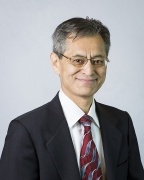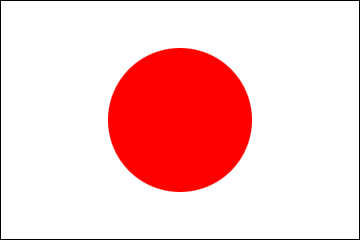Interview with Mr. Yoshi Ogawa
2016/12/16

Yoshi Ogawa was born and raised in Saitama, Japan. He came to the United States as a foreign exchange student to attend high school in Idaho. Mr. Ogawa earned a B.S. in Business from Arizona State University and a Certificate of International Business from American Graduate School of International Management. After graduating, he worked in various sales management positions with Northwest Airlines in Los Angeles, Seattle, and Anchorage.
In 1998, Mr. Ogawa founded a company called International Travel Consultants, Inc., now called ITC Communications, Inc. In 2013, the company received the Governor’s North Star Award for International Excellence for promoting cultural exchange. Mr. Ogawa also helped launch the first exchange trips between Sand Lake Elementary School and Mears Middle School and Chitose, Anchorage’s sister city in Hokkaido.
Mr. Ogawa is currently a Chartered Financial Consultant at Eagle Strategies LLC. Mr. Ogawa served as the President of the Japanese Society of Alaska for over 5 years, and he is now one of the advisors to the Japan Alaska Association.
Q: How did you become interested in international business?
A: Due to my bi-cultural background, I wanted to use my experience and language skill in business development and transactions. I believe that the market is the world, not limited to our own neighborhood.
Q: How did you decide to start your own travel consultant company?
A: When you are working for a company, there is a limitation to what you can do. I wanted to use my experience and to exercise my creativity, and to test my ability to the fullest. I realized that there was no company or organization in Alaska that specialized in logistic solutions for travel to Japan, not from Japan. I wanted to cater to the Alaskan market in helping more people and organizations to easily travel to Japan to experience its culture and people. The company has evolved over the years to provide consulting and professional interpreting service as well.
Q: What was the most challenging aspect of creating and running a business, and how did you overcome it?
Deciding to start a business was the hardest. Cash flow, cyclical nature of business, volatility to economic, political, currency fluctuations, and natural disasters are some of major factors that could turn the business upside down. This pertains especially to the travel and hospitality industry.
As a highly niched business, my business model was not diversified. Thus, I developed totally unrelated professional skill sets along the way in financial services professions to counterbalance these risks. My service includes trans-border financial planning as well. My professional portfolio is more diversified and neither of business affects the other business. It rather provides synergistic effect as a result.
Q: How has growing up in Japan influenced your education and career in the United States?
A: I currently use both Japanese and English language on a daily basis for both of my business. The best thing I learned was to be open minded in looking at things and to be mentally flexible. Acknowledging the difference as neither good nor bad is important, yet, I am always challenged to push the boundary.
Q: What is the process of coordinating an intercultural exchange between two schools? How is intercultural exchange beneficial to students?
A: My role is to eliminate as much logistical headaches as possible for the administrators and students so that schools can focus on the content of the exchange itself. In other words, my job is to build the stress free framework, i.e. every aspect of travel logistics, so the schools can focus on the core object of cultural exchange.
Intercultural exchange is a must for students wanting to work in an international environment. My passion is that as many students as possible can travel to Japan and experience Japan and its people and culture on a first hand basis. There is nothing better than being there when it comes down to studying Japanese.
In 1998, Mr. Ogawa founded a company called International Travel Consultants, Inc., now called ITC Communications, Inc. In 2013, the company received the Governor’s North Star Award for International Excellence for promoting cultural exchange. Mr. Ogawa also helped launch the first exchange trips between Sand Lake Elementary School and Mears Middle School and Chitose, Anchorage’s sister city in Hokkaido.
Mr. Ogawa is currently a Chartered Financial Consultant at Eagle Strategies LLC. Mr. Ogawa served as the President of the Japanese Society of Alaska for over 5 years, and he is now one of the advisors to the Japan Alaska Association.
Q: How did you become interested in international business?
A: Due to my bi-cultural background, I wanted to use my experience and language skill in business development and transactions. I believe that the market is the world, not limited to our own neighborhood.
Q: How did you decide to start your own travel consultant company?
A: When you are working for a company, there is a limitation to what you can do. I wanted to use my experience and to exercise my creativity, and to test my ability to the fullest. I realized that there was no company or organization in Alaska that specialized in logistic solutions for travel to Japan, not from Japan. I wanted to cater to the Alaskan market in helping more people and organizations to easily travel to Japan to experience its culture and people. The company has evolved over the years to provide consulting and professional interpreting service as well.
Q: What was the most challenging aspect of creating and running a business, and how did you overcome it?
Deciding to start a business was the hardest. Cash flow, cyclical nature of business, volatility to economic, political, currency fluctuations, and natural disasters are some of major factors that could turn the business upside down. This pertains especially to the travel and hospitality industry.
As a highly niched business, my business model was not diversified. Thus, I developed totally unrelated professional skill sets along the way in financial services professions to counterbalance these risks. My service includes trans-border financial planning as well. My professional portfolio is more diversified and neither of business affects the other business. It rather provides synergistic effect as a result.
Q: How has growing up in Japan influenced your education and career in the United States?
A: I currently use both Japanese and English language on a daily basis for both of my business. The best thing I learned was to be open minded in looking at things and to be mentally flexible. Acknowledging the difference as neither good nor bad is important, yet, I am always challenged to push the boundary.
Q: What is the process of coordinating an intercultural exchange between two schools? How is intercultural exchange beneficial to students?
A: My role is to eliminate as much logistical headaches as possible for the administrators and students so that schools can focus on the content of the exchange itself. In other words, my job is to build the stress free framework, i.e. every aspect of travel logistics, so the schools can focus on the core object of cultural exchange.
Intercultural exchange is a must for students wanting to work in an international environment. My passion is that as many students as possible can travel to Japan and experience Japan and its people and culture on a first hand basis. There is nothing better than being there when it comes down to studying Japanese.
